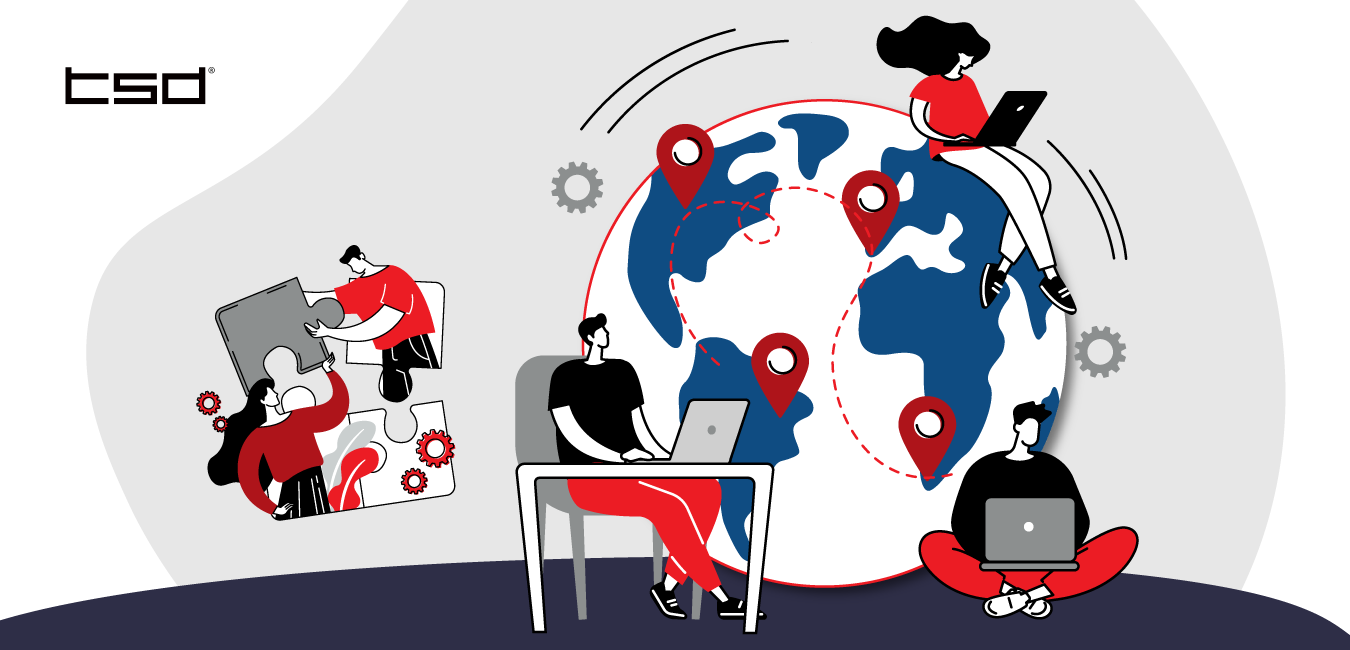
Effective project management is essential to the success of any project. When you are working with an extended IT team, leveraging your partnership can help you gain extra technical know-how and skills for your in-house department and cover gaps in expertise.
Collaboration is a key factor of project management, but managing communication, workflows, and processes can become more complicated when your team is spread across different locations and time zones. However, with the right strategies and tools, it is possible to master remote collaboration and achieve project management effectiveness with an extended team.
In this blog post, we explore some of the tips and best practices for managing projects with extended IT teams based on learnings from over 15 years of experience in partnering with global clients. These steps will help you maximize efficiency and achieve better project outcomes when practicing the team extension model.
The Importance of Clear Communication for Project Management Effectiveness
Clear communication is crucial in project management, especially when working with an extended IT team. This includes setting expectations, establishing goals and objectives, and defining roles and responsibilities. At the beginning of a staff augmentation partnership, you should ensure you have a comprehensive outline in place and clearly communicate your project’s needs, gaps, and requirements.
Your IT provider should be familiar with your project specifics and current technical resource availability. This will help them propose appropriate solutions to your challenges and provide an IT staff that matches your needs to integrate with your internal team. As soon as the collaboration with your IT partner kicks off, you will need to carry out regular B2B meetings with your vendor to ensure smooth project governance.
Additionally, your in-house employees should have daily calls with extended team members to synchronize their day-to-day tasks and achieve a seamless workflow. It is important that everyone knows their role within the team and feels comfortable as part of it, in spite of the physical distance.
Following the Right Project Management Methodology
Agile methodologies, such as Scrum and Kanban, are effective ways to manage software development projects through sprints. They provide a framework for prioritizing tasks, managing workflows, and facilitating collaboration.
Other methodologies, such as Waterfall and its linear approach, also offer opportunities for project management effectiveness within extended teams.
The methodology used typically depends on the client. If you have, for example, adopted the Scrum methodology internally and it fits your processes and workflows, your IT partner and its extended staff will generally use this methodology during your project.
Leveraging Technology and Tools
There are many project management tools and software products available that can help to streamline and optimize your collaboration and workflow. Examples include project management software, team communication platforms, and virtual meeting tools.
It’s a good idea to use the solution that you are utilizing internally and integrate your extended team members into those platforms. This will help to shorten the distance between your in-house staff and remote IT experts and ensure a flawless project governance and execution workflow.
Building a Strong Team Culture
Building a strong team culture is essential to effective collaboration. This includes fostering trust, promoting open communication, and creating a sense of ownership and responsibility for project success.
Both in-house and extended team members should be available and willing to help each other on a daily basis and be ready to work together on tackling issues in a timely and collaborative manner. Each team member, no matter where they’re located, should know the priorities and goals of the organization and the project itself and work towards achieving them as an integrated unit.
Addressing Challenges
Managing an extended IT team can present challenges, such as dealing with differences in time zone, language, and culture. Addressing these barriers and finding ways to overcome them can lead to more successful project outcomes.
If challenges or issues arise, your best ally is your point of contact at your IT service partner. Each problem should be addressed by the team lead or manager and brought to the awareness of the IT vendor.
Timely communication of potential challenges, issues, or unmatched expectations will help you find a solution fast and get more from your extended team.
Continuous Improvement
Effective project management is an ongoing process, and it’s important to continually review and improve your processes and workflows. This includes regularly soliciting feedback from team members, identifying areas for improvement, and implementing changes to improve efficiency and productivity.
Of course, you can always propose and implement internal changes on your own, but you can also rely on your IT outsourcing partner for advice and assistance when needed. After all, they are experienced in practicing the team extension model with a variety of clients and know how to manage this type of partnership to ensure its mutually beneficial.
In conclusion, mastering collaboration and effective project management with your extended IT team is crucial to success. By adopting appropriate methodologies, leveraging technology and tools, building a strong team culture, addressing challenges, and continually improving your processes and workflows, you can maximize efficiency and achieve better project outcomes.
With clear communication, shared goals, and a focus on collaboration, you can overcome any challenges you’re facing in managing an extended IT team. By implementing these best practices and tips, you can ensure your project is completed on time, within budget, and to the satisfaction of your stakeholders.
For over 15 years, TSD has been successfully practicing the team extension model in partnership with a growing number of global clients from diverse industries, such as finance, accounting and auditing, software and technology, eDiscovery, gambling and entertainment, and more. Our expert IT resources seamlessly integrate with clients’ in-house teams, adding value to their projects through vast technical knowledge and skills, business logic know-how, engagement, and a proactive approach to solving problems.
If you are considering embarking on a nearshore or offshore journey with an experienced IT partner, get in touch today.
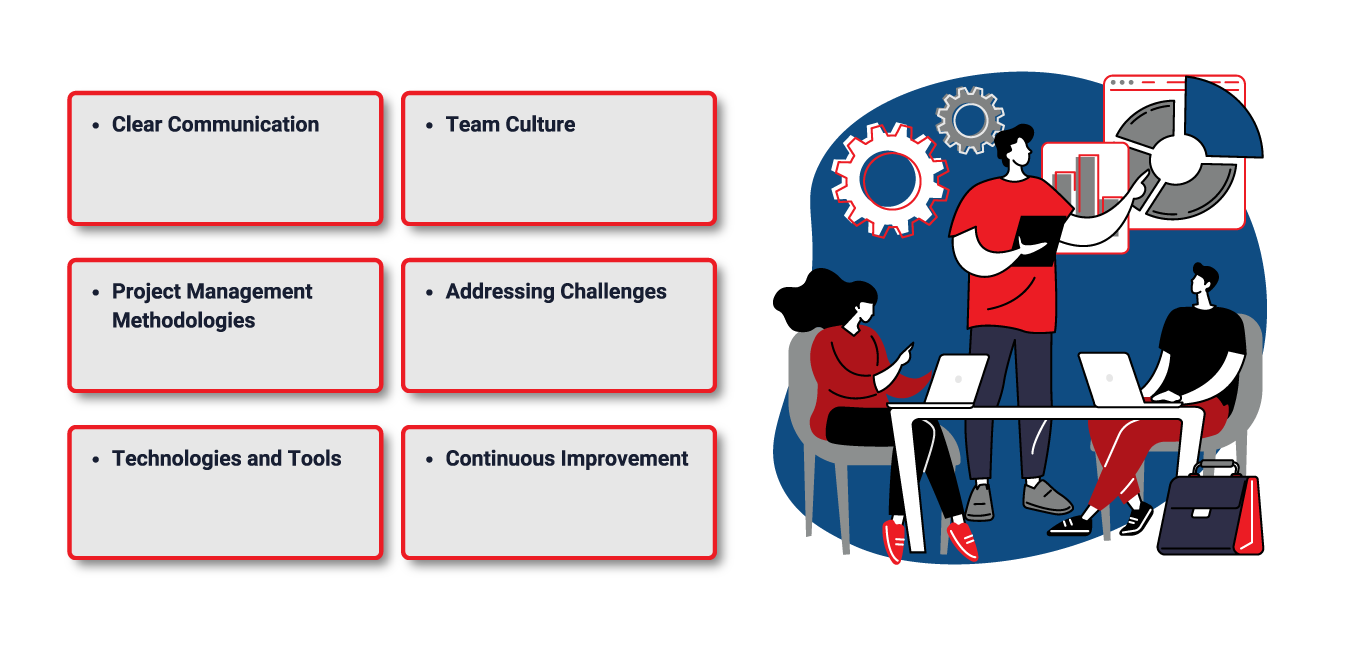
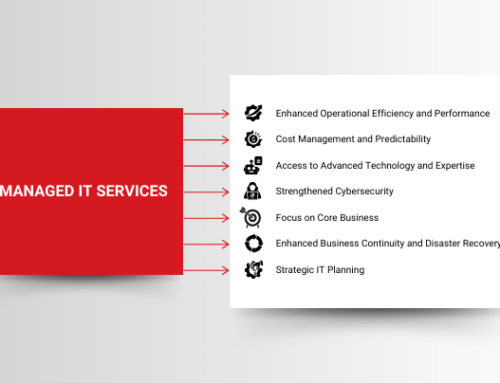



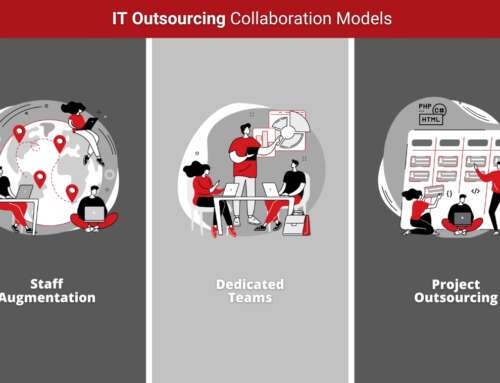


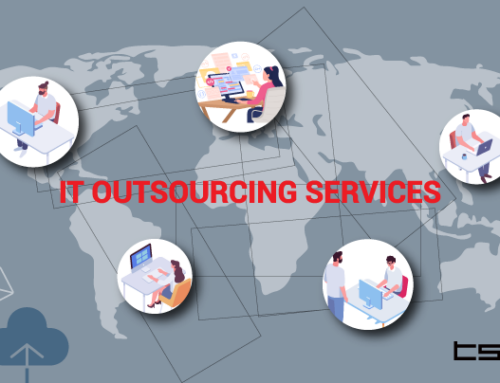
Leave A Comment